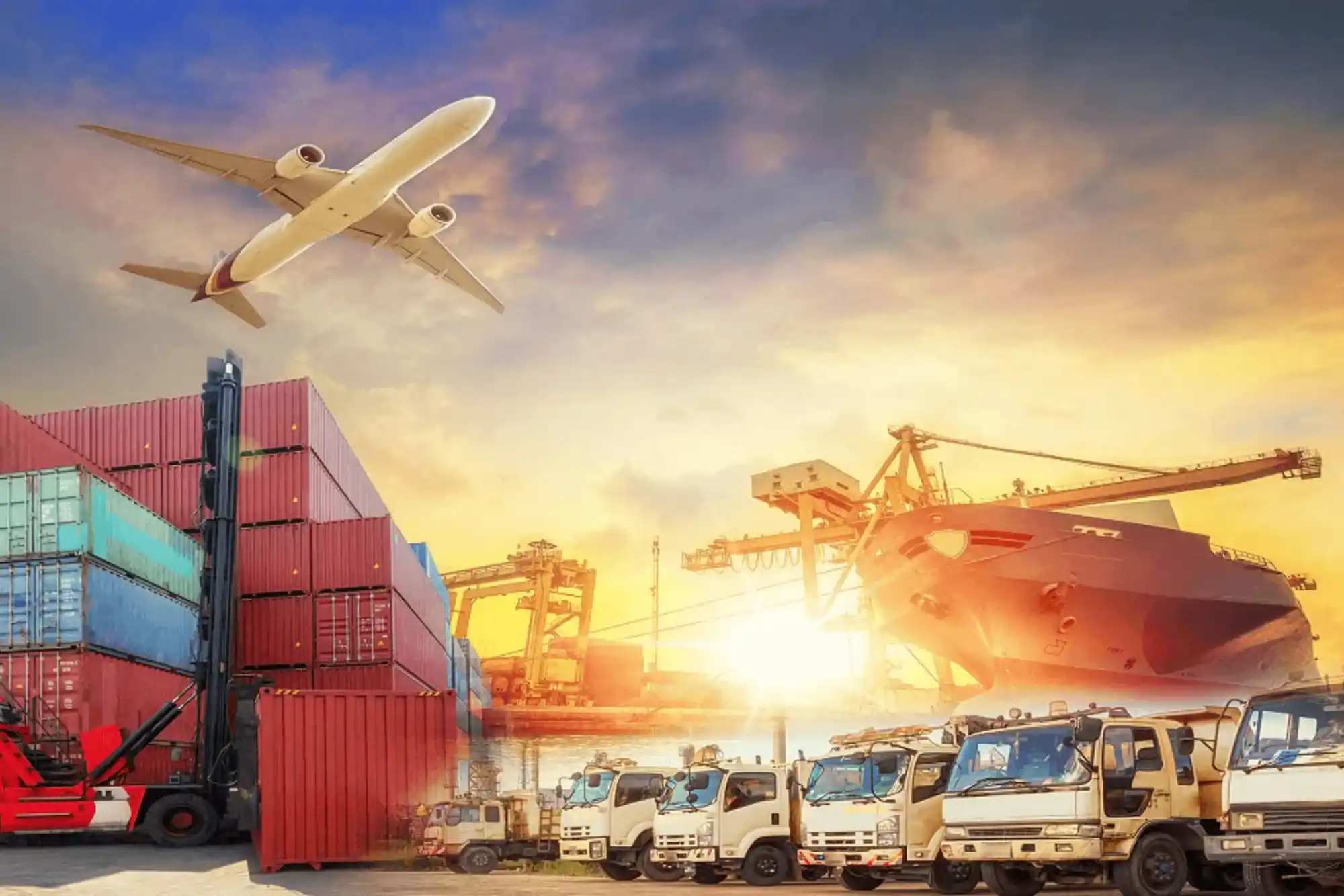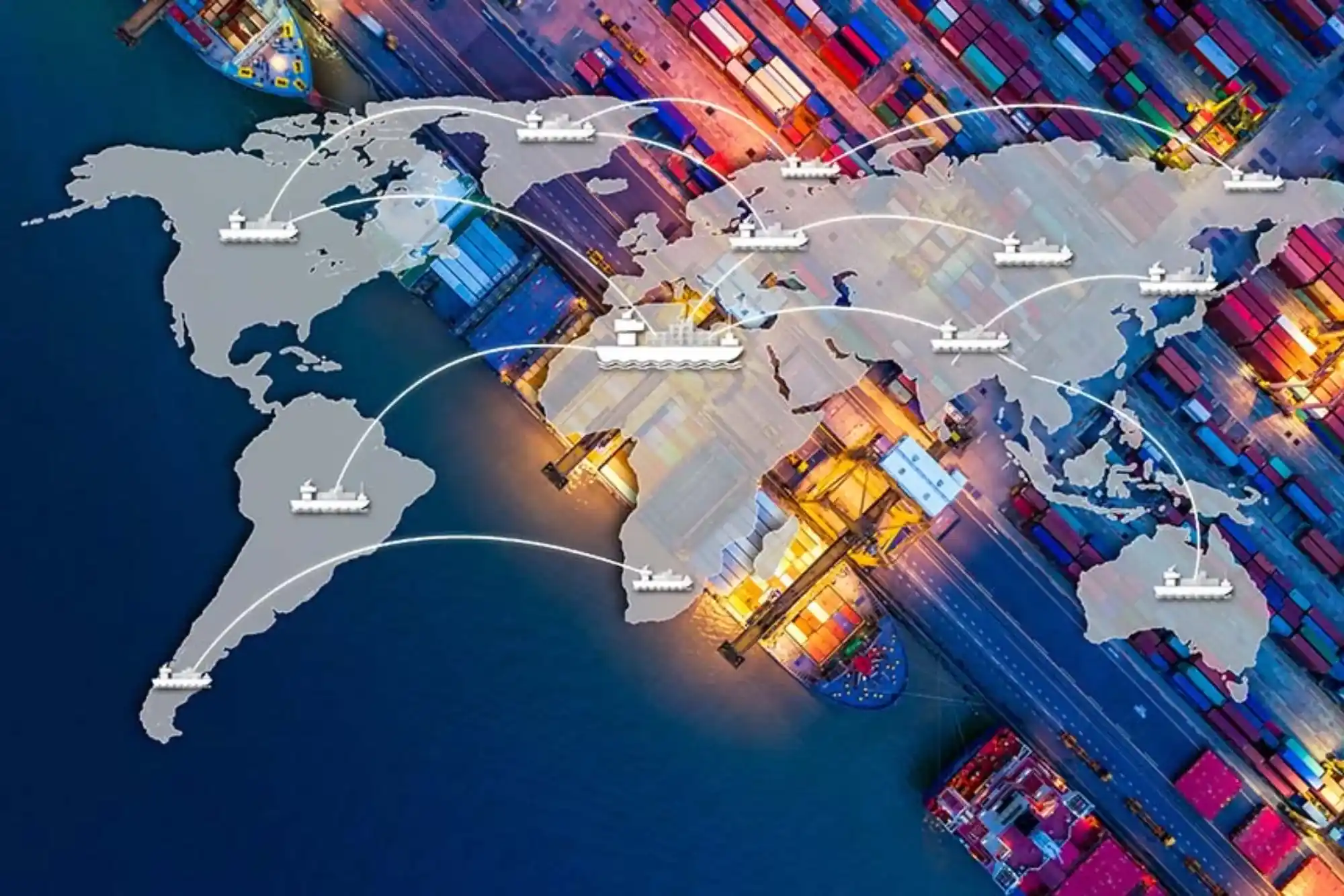In today’s interconnected world, global logistics plays a critical role in the movement of goods, services, and information across countries and continents. As supply chains grow increasingly complex, businesses must navigate a wide array of logistics challenges to stay competitive.
In this comprehensive article, we will examine the various components of global logistics, emerging trends, the challenges companies face, and strategic solutions for optimizing international supply chains.
What is Global Logistics?

Global logistics refers to the process of planning, implementing, and managing the movement of goods and services across international borders. This complex system encompasses a variety of activities including transportation, warehousing, inventory management, customs clearance, packaging, and distribution. The primary goal of global logistics is to ensure that products reach their final destination on time, in good condition, and at the lowest possible cost.
Key Components of Global Logistics
To better understand how global logistics works, it is essential to break down its key components:
- Transportation: The backbone of global logistics, transportation involves moving goods from one location to another using various modes such as air, sea, rail, and road.
- Warehousing: Storage of goods at different points in the supply chain to meet demand without causing delays.
- Inventory Management: Balancing the supply of products with demand while avoiding overstocking or stockouts.
- Customs Compliance: Ensuring that goods meet regulatory requirements in different countries, including import/export documentation and duties.
- Packaging: Proper packaging ensures the safe transport of goods while minimizing damage and optimizing space.
- Distribution: The final stage where goods are delivered to end customers or retailers.
These components must work together seamlessly to ensure efficient global logistics operations.
Trends Shaping Global Logistics
Global logistics is constantly evolving due to technological advancements, regulatory changes, and market dynamics. Here are some of the most significant trends shaping the future of global logistics:
Digitalization and Automation
Technological innovations like the Internet of Things (IoT), artificial intelligence (AI), and blockchain are revolutionizing logistics processes. Digitalization enables real-time tracking, predictive analytics, and automated decision-making, leading to greater efficiency and transparency.
Automation in warehousing and transportation, such as the use of robotics for handling goods and autonomous vehicles for deliveries, is also transforming logistics operations. These technologies reduce human error, improve accuracy, and increase overall efficiency.
Sustainability in Logistics
Sustainability has become a major focus in global logistics, driven by both consumer demand and regulatory requirements. Companies are looking to reduce their carbon footprints by adopting eco-friendly practices such as using electric vehicles, optimizing routes, and implementing energy-efficient warehousing systems. Additionally, green logistics initiatives involve minimizing waste, reducing emissions, and implementing sustainable packaging solutions.
Global Trade Agreements and Regulatory Changes
Changes in international trade agreements and regulations can have a significant impact on global logistics operations. Companies need to stay informed about new tariffs, customs regulations, and other trade policies that affect their ability to move goods across borders. For instance, Brexit and the US-China trade war have led to shifts in supply chain strategies, with businesses seeking alternative suppliers and routes to avoid delays and additional costs.
Omnichannel Logistics
The rise of e-commerce and the growing demand for faster delivery times have led to the development of omnichannel logistics. This approach integrates various sales and distribution channels—such as online platforms, brick-and-mortar stores, and third-party logistics providers (3PLs)—to create a seamless shopping experience for consumers. Omnichannel logistics requires efficient inventory management, rapid fulfillment processes, and the ability to respond to changes in customer preferences.
Resilience and Risk Management
The COVID-19 pandemic underscored the importance of building resilient supply chains that can withstand disruptions. Global logistics now focuses on risk management strategies such as diversifying suppliers, optimizing inventory levels, and investing in real-time monitoring tools. Companies are also developing contingency plans to deal with unexpected events like natural disasters, geopolitical tensions, and pandemics.
Last-Mile Delivery Solutions
Last-mile delivery is the final step in the logistics process, and it often poses the greatest challenge in terms of cost and efficiency. To address this, companies are exploring new delivery models such as drone deliveries, autonomous vehicles, and local delivery hubs. These innovations aim to reduce delivery times and costs while meeting consumer expectations for fast, reliable service.
Table: Key Differences Between Traditional and Modern Global Logistics
| Aspect | Traditional Global Logistics | Modern Global Logistics |
|---|---|---|
| Technology | Manual processes, limited data | Digitalized systems, AI, IoT |
| Sustainability | Focused on efficiency, not environment | Eco-friendly practices, green logistics |
| Risk Management | Reactive approach | Proactive, resilience-focused |
| Delivery Models | Centralized distribution centers | Omnichannel, last-mile solutions |
| Customs Compliance | Paper-based, time-consuming | Automated, real-time tracking |
| Inventory Management | Static, local warehouses | Dynamic, global fulfillment centers |
Challenges in Global Logistics

Despite the advancements in technology and strategy, global logistics remains a complex and challenging field. Below are some of the most pressing challenges companies face today:
Cross-Border Regulations
One of the most significant challenges in global logistics is navigating the varying customs regulations, tariffs, and trade policies across different countries. This can lead to delays, additional costs, and compliance risks for companies. Changes in political environments, such as new trade agreements or geopolitical tensions, can further complicate logistics operations.
Fluctuating Transportation Costs
The cost of transportation can fluctuate based on factors like fuel prices, demand, and global economic conditions. Additionally, shortages of shipping containers, capacity constraints, and port congestion can lead to higher freight rates and longer lead times.
Complex Supply Chains
As companies expand their operations globally, supply chains become more complex. Managing multiple suppliers, transportation routes, and warehousing locations across different countries can be overwhelming. It requires careful planning and coordination to avoid disruptions and ensure timely deliveries.
Cybersecurity Risks
With the increasing reliance on digital tools and technologies, the risk of cyberattacks in logistics is growing. A cyberattack can disrupt supply chain operations, leading to significant financial losses and damage to a company’s reputation. Companies need to invest in robust cybersecurity measures to protect their data and systems from malicious threats.
Strategies for Optimizing Global Logistics
In order to overcome the challenges of global logistics, companies can implement several strategies to enhance efficiency, reduce costs, and improve customer satisfaction.
Leverage Technology
Adopting technologies such as AI, blockchain, and IoT can streamline logistics operations by providing real-time insights into inventory levels, shipment status, and potential disruptions. Implementing warehouse management systems (WMS) and transportation management systems (TMS) can also help optimize the movement of goods.
Partner with Third-Party Logistics Providers
Outsourcing logistics operations to third-party logistics providers (3PLs) allows companies to focus on their core business activities while leveraging the expertise and resources of specialized logistics firms. 3PLs can offer services such as warehousing, transportation, customs clearance, and inventory management.
Focus on Sustainability
Incorporating sustainability into logistics practices is not only beneficial for the environment but can also lead to cost savings. Companies can reduce their carbon footprint by using energy-efficient transportation, optimizing delivery routes, and implementing reusable packaging.
Improve Supply Chain Visibility
Having end-to-end visibility into the supply chain allows companies to monitor the movement of goods in real time, anticipate potential disruptions, and make informed decisions. This can be achieved through the use of tracking technologies, data analytics, and automated reporting systems.
Enhance Risk Management
To mitigate the risks associated with global logistics, companies should develop contingency plans for potential disruptions, such as natural disasters, trade disputes, or cyberattacks. Diversifying suppliers and building buffer stocks can also help ensure supply chain continuity during unexpected events.
FAQs on Global Logistics
What is global logistics?
Global logistics refers to the process of managing the movement of goods, services, and information across international borders, ensuring that products reach their destination efficiently and cost-effectively.
What are the key challenges in global logistics?
The main challenges include cross-border regulations, fluctuating transportation costs, complex supply chains, and cybersecurity risks.
How can companies optimize global logistics?
Companies can optimize global logistics by leveraging technology, partnering with 3PLs, focusing on sustainability, improving supply chain visibility, and enhancing risk management.
Why is sustainability important in global logistics?
Sustainability is crucial because it reduces environmental impact, lowers costs, and meets the growing demand for eco-friendly practices in logistics operations.
What role does technology play in global logistics?
Technology plays a pivotal role in improving efficiency, providing real-time insights, automating processes, and reducing the risk of human error in logistics operations.










